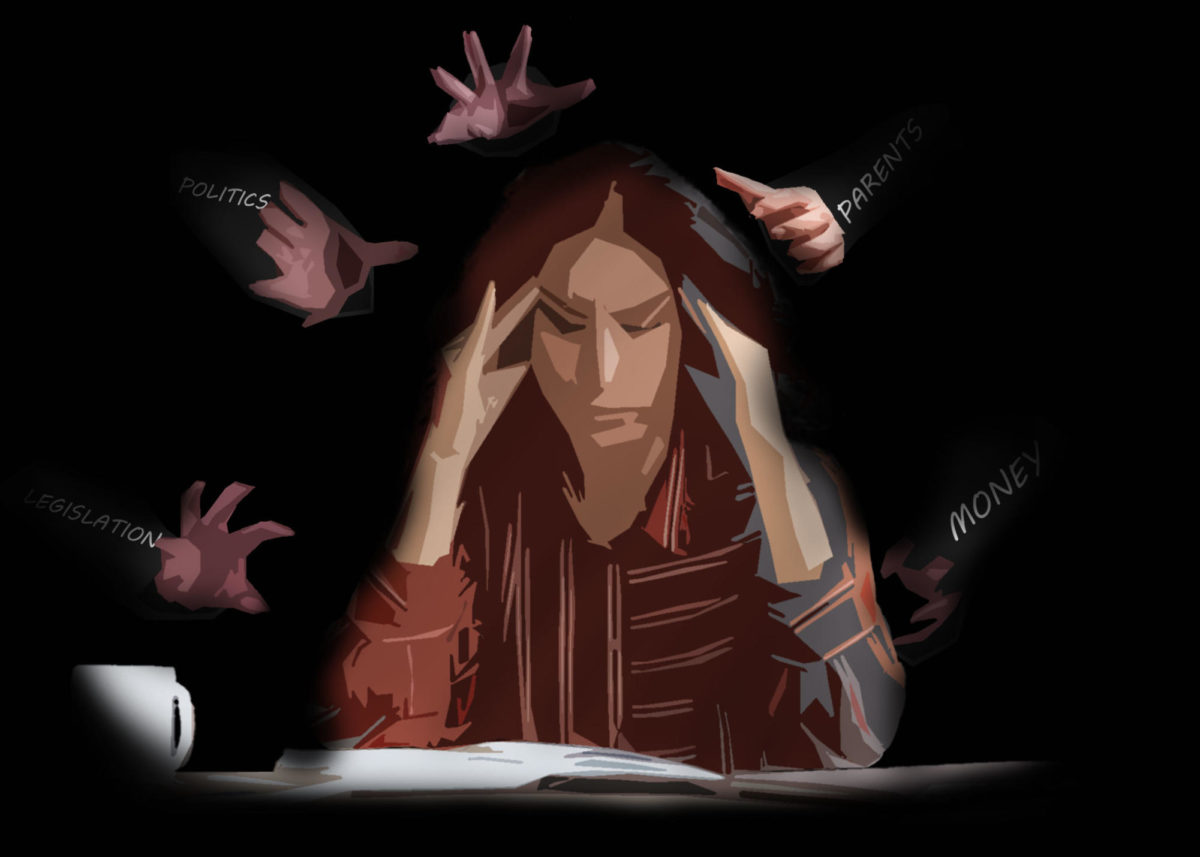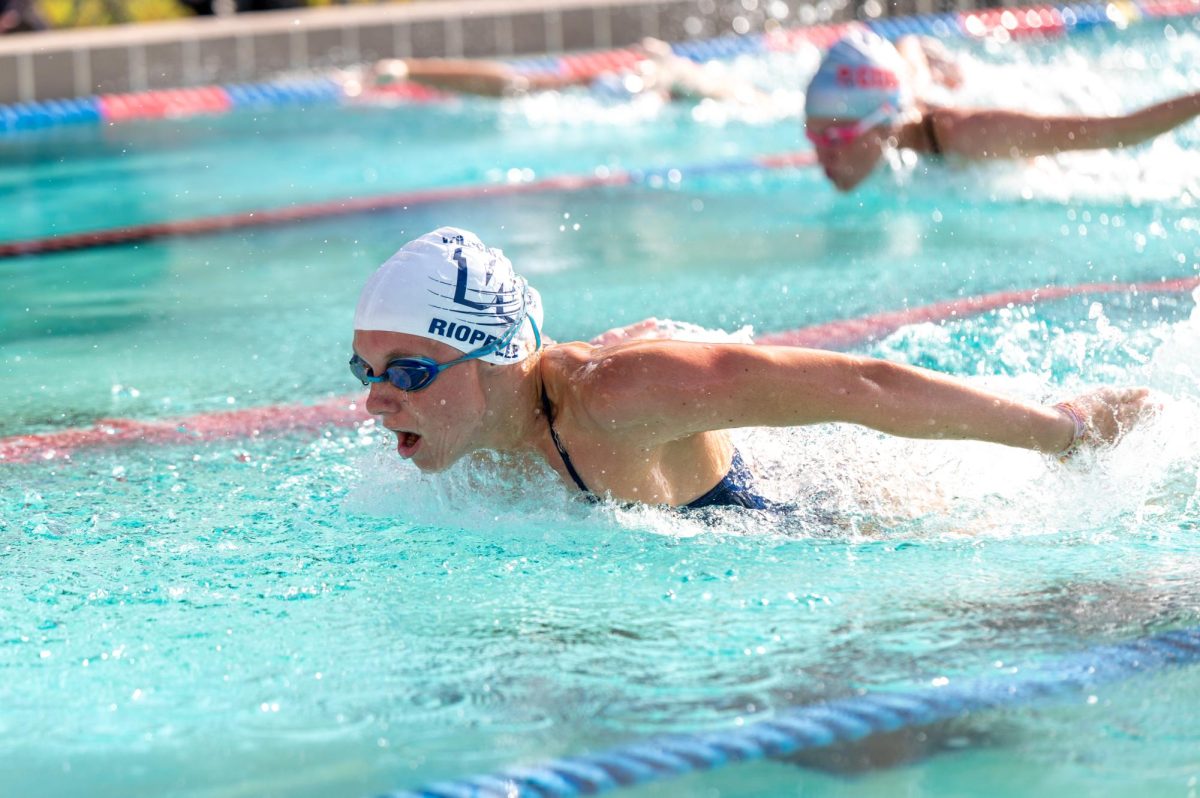AP World History teacher Kirk Murphy has taught in Florida for 32 years. As he prepares to retire within the next two years, he contemplates how technology has changed his profession and said he longs for simpler times.
“I don’t think you guys can imagine the changes I’ve seen,” Murphy said. “We didn’t really have computers like we have today. We didn’t even have the internet for probably three or four years, and even then, you were not expected to do a lot with it. You still had to do everything manually. Heck, before there were copy machines all over the place, we had mimeograph machines, which you had to ink up and turn the handle.”
While Murphy said technology has undoubtedly altered education, he also said politics are increasingly encroaching on the field.
“There have always been things that politicians have done at the national level — for example, [President George W. Bush] had [the No Child Left Behind Act] — but the politicization that we see now, that’s a recent trend,” he said. “It goes back to [President Donald Trump] appointing Betsy DeVos in 2017 to be the head of the Federal Department of Education when she had already come out against public education.”
Recent developments, such as the enacting of the Parental Rights in Education Act in 2022, make the trend of politicization in education specific to Florida. The Parental Rights in Education Act was used to challenge AP Psychology curriculum and to implement parental consent forms for students to participate in any extracurricular activity, including meeting with their teachers outside of class.
“Legislation has become much more active in schools over the past several years,” Principal Rick Fleming said, “which has had impacts that make it difficult to keep up in schools with how that legislative process works. I think the new legislation is challenging for us on having forms signed on everything a student does outside the classroom. I believe a lot of this conversation should happen at home.”
According to the Orlando Sentinel, as of Aug. 31, there are 6,900 teacher positions open in Florida, with similar numbers in other states. Murphy said recent legislation has impacted the shortage of teachers.
“There is no question that politics has created a hostile work environment in schools,” he said. “This most recent round of forms is a punch in the gut. It’s amazingly disrespectful. I don’t know any teacher that’s in favor of this. I can understand [forms for] some things — for example, clubs — but study hall?”
Senior Charlie Miller said he is more skeptical about parent involvement in schools.
“Parents deserve a right to know what their student is doing,” Miller said. “However, I don’t feel that knowledge should have complete control over what students are doing or learning. There are aspects of school, like clubs, that should be private to the student so that they are able to express their own personal beliefs and thoughts without worrying about their parents judging them.”
Miller said he understands that the recent round of legislation is not one party’s doing.
“Recent developments are pushed more by Republicans, but it is push-back due to prior actions by the Democratic Party,” he said. “I don’t know if that necessarily has to do with the Democratic Party itself, but more its followers, such as LGBTQ+ members and other liberal activists in education. I don’t think one party can be given full responsibility.”
In April 2022, Gov. Ron DeSantis said, “Our education system should be used to educate kids, not to indoctrinate them.” Fleming said the changes in legislation stem from this philosophy.
“You may have some rogue teachers out there that are teaching some kind of political agenda,” Fleming said. “It falls upon me as the principal if I’m in a school to find out if a teacher is leaning kids in one direction politically or down a path that a parent wouldn’t approve of. If so, that teacher is going to end up in my office because I expect my teachers to be politically agnostic to everything. Because of some cases of rogue teachers out there that have not been corrected, the Parental Rights in Education Act was born.”
Murphy said that the governor’s politics are being used to pit parents against teachers.
“There is a distrust here that didn’t exist when I was a kid or when I first started teaching,” Murphy said. “Teachers have been maligned. Parents say, ‘You’re teaching Critical Race Theory.’ No, we are not. Nobody was teaching Critical Race Theory, not in high school. It almost seems as if some people are purposely trying to drive wedges in society as a whole.”
Murphy said the aim of turning parents against teachers is to fundamentally change the education system for political favors.
“I think the Republicans are trying to make all schools charter schools,” Murphy said. “They are doing it with privatizing prisons and things like that because politicians have donors that donate to their campaign, and they have to do a tit-for-tat. We have seen more and more changes going towards charter schools, and we are moving away from public education toward private education. There are always people who are going to suffer in both systems, but under private education, it will be a larger group.”
According to the National Center for Education Statistics, in 1970 education was the No. 1 degree for bachelor degree students, with 21 percent of graduates being in education. In 2020, the number of students getting degrees in education was four percent.
“There was a time when you could go into a classroom and ask a group of 30 students, ‘How many of you are considering being a teacher?’” Fleming said. “Fifteen years ago, you may see five or six hands go up. Now, if I did that in one of your classes, you may get one hand going up, and the rest of the students look at that student and go, ‘What, are you crazy?’ That scares me, and I think the political environment has had something to do with that.”
Florida has become a battleground for debates over parental rights and education, and Murphy said this is an environment that he would not want to start teaching in.
“I’m sorry, but I would encourage no person to start teaching in Florida right now,” he said. “I cannot imagine what it’s going to be like in 20 years. I can’t even imagine.”
Categories:
Feared and fearful
Newest Florida education legislation poses unique challenges for students, teachers
October 16, 2023
More to Discover
About the Contributor

Aaron Murphy, Sports Editor
Hi. My name is Aaron Murphy. I’m a senior, and this is my second year on the “Roar”. I’ve been on the soccer team for five years, and I’m also on varsity track and cross country. I love history and politics, and I strive to bring a unique perspective to the “Roar”.










































